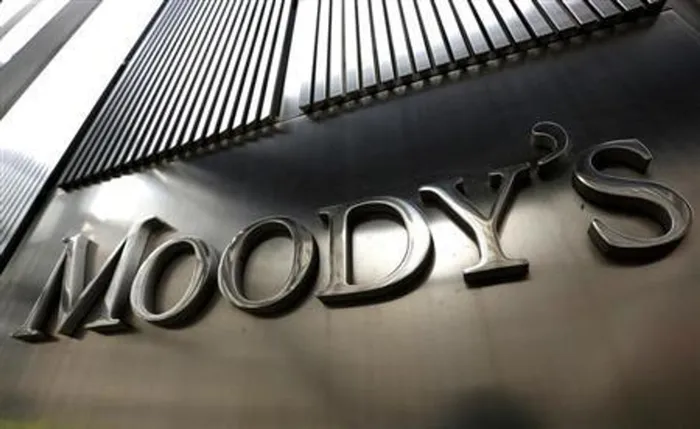
File image: Ratings agency, Moody's. Reuters. File image: Ratings agency, Moody's. Reuters.
DURBAN - South African business and consumers can breathe easier after ratings agency Moody’s Investors Service on Friday affirmed South Africa’s investment-grade credit rating and revised its credit outlook to stable from negative.
Moody’s rates the country's debt at ‘Baa3’.
The Treasury said in a statement on Friday that the reprieve from Moody’s showed that steady progress in meeting the objectives set out in new President Cyril Ramaphosa's State of the Nation address in February was key for the country’s economic and fiscal prospects to be sustained.
Zuzana Brixiova, Moody’s vice-president and senior analyst and lead sovereign analyst for South Africa, said the confirmation of South Africa's ratings reflected Moody's view that the previous weakening of South Africa's institutions would gradually reverse under a more transparent and predictable policy framework.
Brixiova warned that the political, policy and practical challenges of meeting diverse economic, social and fiscal objectives "cannot be underestimated. Failure, at least as perceived by investors or voters, could lead to a further cycle of eroding economic, fiscal and institutional strength."
He said the recent change in political leadership appeared to have halted the gradual erosion of the strength of South Africa's institutions.
"With changes in governance, a number of key institutions, including the Treasury, the South African Revenue Service and key State-Owned Enterprises have embarked on the recovery of their earlier strength."
Brixiova said, "The recently-announced one percentage point increase in VAT will broaden the fiscal policy response beyond the expenditure controls on which the government has increasingly relied in recent years. However, its significance goes beyond the moderate increase in revenues (of around R22 billion) that the increase will allow. As the first increase in indirect taxes for over two decades, the change signals a marked, and credit positive, policy shift."
Overall, Moody's now expected the government's debt burden to stabilize at around 55% of gross domestic product over the 2018-2020 period, he said.
Cas Coovadia, the managing director of the Banking Association of South Africa, said on Saturday that all South Africans – business and consumers – would benefit from this show of confidence in the progress the country had made in addressing some of the concerns previously raised by the rating agency, and in its economy that is beginning to show some growth.
Coovadia said another sovereign credit rating downgrade would have inevitably been reflected in the ratings of South Africa’s banks, and increased the cost of borrowing for the country, companies and financial institutions, as well as making it harder to secure essential investment. In the end, all South Africans would have felt the burden.
Neil Roets, the chief executive of debt counselling firm Debt Rescue, said on Saturday consumers had reason to be thankful for the reprieve.
“The majority of South Africans are living on the edge of financial disaster and even a slight dip in economic activity is enough to drive many of them into bankruptcy.
Consumers, who are already under pressure, are facing the onslaught of an increase in VAT and higher fuel levies in April.
Roets said more than half of all South Africans were three months or more behind in their debt repayments, collectively owing some R1.73trillion in debt (latest National Credit Regulator stats).
Annabel Bishop, Investec Bank's chief economist in South Africa, said the Moody's review of South Africa was as expected, as the agency built the market and business euphoria resulting from the election of Cyril Ramaphosa to ANC and SA President into its analysis of the country, moving the outlook from negative to stable.
"A shift to a positive outlook, which signals a rating upgrade, will be dependent on deliverables however in terms of sustained robust economic growth, improved institutional strengths and meaningful fiscal consolidation," she said.
Professor Raymond Parsons, a professor at the NWU School of Business & Governance, said on Saturday economic growth in 2018 could now be about 1.8%, compared to much lower forecasts only a few months ago and higher than the 1.3% experienced last year. Moody's decision might also encourage the SA Reserve Bank to make a modest cut in interest rates at its Monetary Policy Committee meeting next week, apart from other considerations such as a lower rate of inflation and a stronger rand.
Investor confidence has been boosted since Ramaphosa replaced scandal plagued Jacob Zuma, which has led to a stronger rand.
Elize Kruger of NKC African Economics on Friday said following the rand’s significant appreciation on the back of positive political developments in the past few months, the average rand exchange rate for 2018 was likely to be R12.08/$ this year, “which represents a 9.3 percent appreciation compared to 2017’s average (R13.32/$). The average for 2019 is forecast at R12.44/$, notably stronger than our previous forecast of R14.73/$.